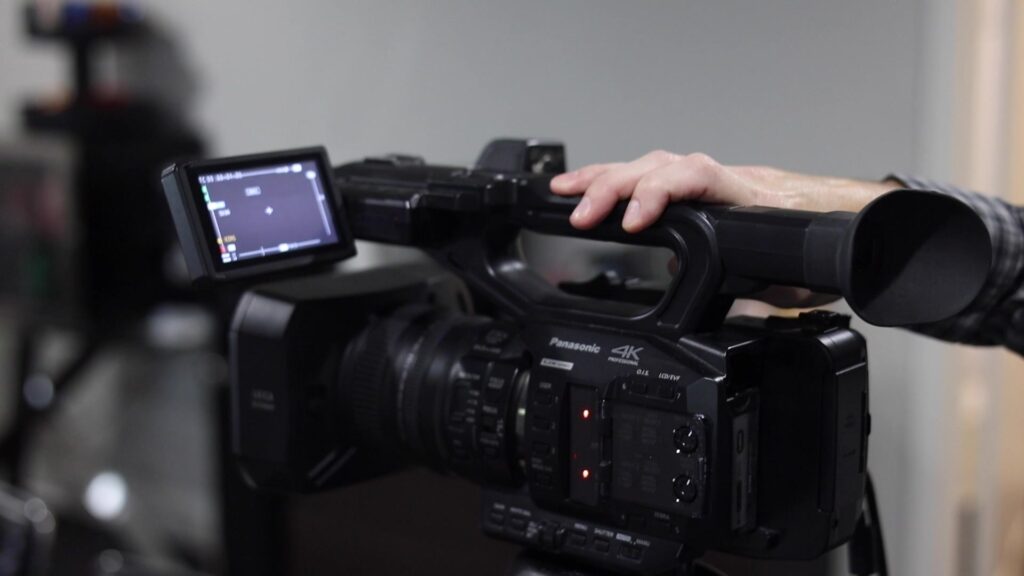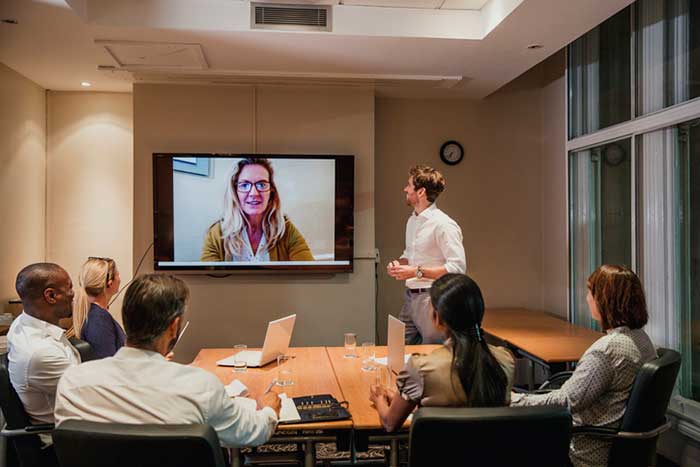What clients need to know before their legal video depositions session
The Relevance of Legal Video Clip Depositions in Modern Legal Services: What You Ought to Know
Legal video clip depositions have actually become essential in today's lawful landscape. They offer a multidimensional view of witness statements that typical records simply can not match. By catching both non-verbal and verbal communication, these depositions enhance the overall understanding of a witness's integrity. Nevertheless, the performance of video depositions pivots on various variables, including conformity with lawful requirements and ideal practices (legal video depositions). Discovering these aspects reveals their true importance in contemporary lawful solutions
What Are Legal Video Depositions?
Lawful video depositions work as an essential device in the litigation process. They involve videotaping witness testimonies in a video format, catching both non-verbal and spoken interaction. This approach enables attorneys to document the demeanor, expressions, and reactions of witnesses, supplying a richer context for the testament. Generally conducted in a controlled setting, these depositions are led by lawyers who ask questions while a court press reporter records the dialogue. The resulting video can be important for trial preparation, as it allows attorneys to examine the reliability of witnesses and fine-tune their approaches. Furthermore, lawful video depositions can be made use of in various legal contexts, varying from civil conflicts to criminal instances. The visual and acoustic elements of video depositions enhance the presentation of evidence, making it an important component in the modern-day legal landscape. Generally, they add substantially to the efficiency and effectiveness of legal proceedings.

Advantages of Video Clip Depositions Over Traditional Methods
Video depositions provide countless benefits compared to conventional techniques of taking witness testaments. One considerable benefit is the ability to capture both audio and aesthetic aspects, offering a much more thorough record of the witness's statements. This double style enhances quality and allows lawyers to reference details subtleties during trial preparation. In addition, video clip depositions facilitate remote involvement, making it less complicated for witnesses who might be inaccessible for in-person looks due to geographical constraints or wellness issues.Moreover, video depositions can expedite the total deposition process, lowering the moment and expenses related to traveling and logistics. They additionally enhance availability, as videotaped depositions can be easily shared among lawful groups and referenced at any moment. This benefit adds to much better situation monitoring and prep work. In general, video depositions represent a contemporary, efficient strategy to collecting witness testaments, straightening with the progressing demands of the lawful career.
The Role of Body Language and Tone in Testimonies

In legal video depositions, body language and tone play crucial duties in conveying a witness's trustworthiness and dependability. Nonverbal cues can offer insights right into a witness's psychological state, influencing exactly how their testimony is viewed. Understanding the effect of these elements is important for jurors and lawyers alike when evaluating the reliability of a testimony.
Nonverbal Interaction Insights
While spoken interaction is usually highlighted in legal testaments, nonverbal signs such as body language and tone play an important duty in communicating trustworthiness and emotion. Onlookers of depositions might keep in mind that a witness's posture, motions, and face expressions can considerably affect assumptions of reliability. Consistent eye get in touch with may signal confidence, while avoiding gaze could suggest dishonesty or pain. In a similar way, the tone of voice-- its pitch, pace, and volume-- can present sensations of genuineness or unpredictability. Attorneys should be attuned to these nonverbal signals, as they often offer crucial context that enhances spoken words. Recognizing these subtleties can enhance the performance of depositions and influence the end result of legal process.
Psychological Tone Impact
The psychological tone communicated throughout lawful testimonies substantially impacts how a witness is perceived. Body language, singing inflections, and facial expressions play crucial functions in shaping the story of a testament. A witness exhibiting self-confidence through consistent eye call and a tranquil tone can instill a sense of dependability and engagement. Alternatively, indications of anxiousness, such as fidgeting or a shaky voice, might lead to suspicion concerning their account. The subtleties of psychological expression can influence the analysis of facts, making it essential for lawyers to acknowledge these cues. In video clip depositions, the aesthetic and acoustic elements combine, stressing the importance of psychological tone in sharing genuineness and reliability within the lawful procedure.
Trustworthiness and Reliability
A crucial factor in developing trustworthiness and trustworthiness during testimonies depends on the witness's body movement and tone of voice. Viewers usually rely upon non-verbal cues-- such as eye get in touch with, stance, and gestures-- to assess a witness's genuineness. For a fantastic read example, a witness that maintains eye call and shows open body movement may be regarded as even more truthful and reputable than one that avoids eye contact or shows up closed off. Additionally, intonation plays an essential role; a steady, calm tone can enhance the reputation of the statement, while changes in pitch or volume may elevate questions. Eventually, the combination of body language and vocal tone considerably influences exactly how a witness's declarations are obtained and interpreted in a legal context.
Finest Practices for Conducting Video Clip Depositions
Performing video depositions needs mindful preparation and execution to ensure a clear and reliable discussion of testament. First, it browse around here is essential to pick a silent, well-lit area to reduce interruptions and safe optimum video quality. The equipment ought to be checked ahead of time, consisting of video cameras, microphones, and lighting, to prevent technical problems during the deposition.Next, parties included have to evaluate the format and procedures ahead of time, making certain that every person understands their roles. The deponent ought to be oriented on the process, consisting of just how to react plainly and concisely.Additionally, maintaining an expert disposition throughout the session is necessary. This includes avoiding speaking over one another and confirming that all questions are directed appropriately. Ultimately, it is critical to tape the deposition in a layout that permits easy playback and testimonial, maintaining the integrity of the testimony for future usage.
Legal Factors To Consider and Compliance Issues
Exactly how do lawful factors to consider and compliance concerns influence the effectiveness of video clip depositions? Lawful specialists need to navigate a complex landscape of laws, making sure that video clip depositions abide by jurisdictional regulations and standards. Compliance with laws concerning privacy, consent, and recording methods is vital. As an example, acquiring explicit permission from all celebrations included is needed to avoid lawful repercussions.Additionally, the admissibility of video evidence in court can rest on conformity with step-by-step demands. Ensuring that the equipment used satisfies technological criteria is likewise vital, as inadequate quality can undermine the deposition's reliability.Moreover, lawyers have to recognize any certain state regulations that govern video depositions, as these can differ considerably. Failing to address these factors to consider can not only endanger the honesty of the deposition yet likewise affect the general instance method, inevitably influencing the client's lawful end results.
Exactly How Video Clip Depositions Effect Court Perception
While video clip depositions can act as powerful tools in lawful proceedings, their influence on jury understanding is substantial. The acoustic and aesthetic aspects of video recordings provide jurors with an extra complete understanding of witness demeanor, trustworthiness, and emotional reactions. This multimedia strategy can boost the jurors' capability to evaluate the reliability of testament contrasted to conventional text-based transcripts.Moreover, video depositions allow jurors to observe body movement, intonation, and face expressions, all of which can affect their analysis of the witness's statements. The visibility of a witness on screen can humanize them, fostering empathy and connection, which may guide jurors' point of views. Conversely, a witness who appears incredibly elusive or unreliable on video page might lead to adverse perceptions that influence a jury's choice. Inevitably, the dynamic nature of video clip depositions plays a vital duty in shaping just how jurors analyze evidence and reach their decisions.
The Future of Video Clip Depositions in Legal Method
As improvements in modern technology continue to improve the lawful landscape, the future of video depositions is poised for considerable evolution. Developments such as man-made knowledge, digital fact, and boosted video clip conferencing tools are expected to enhance the deposition procedure and improve ease of access. Attorneys may use AI-driven analytics to examine witness credibility and instance strength extra effectively.Moreover, the combination of online reality might enable courts to experience immersive simulations of depositions, providing much deeper context and understanding. Furthermore, the trend toward remote depositions is most likely to continue, supplying higher versatility for customers and attorneys alike.As remote work ends up being significantly normalized, video depositions will likely become typical method, lowering costs and time constraints linked with traditional methods. On the whole, these technical innovations guarantee to improve the efficiency, efficiency, and ease of access of video clip depositions in lawful technique, inevitably changing how legal experts prepare for trial.
Frequently Asked Concerns
Just How Much Do Lawful Video Clip Depositions Typically Cost?

Can Video Clip Depositions Be Utilized in Any Kind Of Case?
Video clip depositions can be made use of in various kinds of cases, including civil, criminal, and family members regulation. Their adaptability allows lawyers to existing witness testaments efficiently, adapting to the details needs of various lawful circumstances.
What Tools Is Required for a Video Deposition?
To conduct a video clip deposition, essential devices includes a high-grade camera, microphone, lights, and a dependable recording tool. Furthermore, a computer with editing software might be necessary for post-production and formatting the last video clip.
How much time Does a Typical Video Clip Deposition Last?
A typical video deposition lasts between 2 to 4 hours, depending upon the complexity of the situation and the variety of questions positioned. Prolonged sessions may occur, yet breaks are typically integrated for participant comfort.

Are Video Depositions Admissible in Court?
Video depositions are usually admissible in court, given they follow lawful standards and rules of evidence. Their use boosts clarity and protects witness testimony, aiding in the judicial procedure throughout hearings and tests. Lawful video depositions have become essential in today's lawful landscape. In addition, lawful video depositions can be made use of in different legal contexts, varying from civil conflicts to criminal cases. Furthermore, video depositions help with remote participation, making it simpler for witnesses that may be not available for in-person appearances due to geographical constraints or health and wellness issues.Moreover, video clip depositions can speed up the overall deposition procedure, reducing the time and costs associated with traveling and logistics. Making sure that the equipment used meets technological requirements is also essential, as inadequate high quality can weaken the deposition's reliability.Moreover, lawyers should be conscious of any type of details state regulations that govern video depositions, as these can vary substantially. Furthermore, the fad towards remote depositions is most likely to continue, offering greater adaptability for customers and attorneys alike.As remote job ends up being significantly normalized, video depositions will likely end up being common practice, decreasing costs and time restrictions connected with typical techniques.